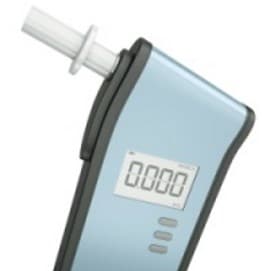 Some people think that a driver who tested positive for alcohol on a roadside breathalyzer has to be drunk. Those machines never lie! Well think again, there are many variables that can influence a breathalyzer test and result in a false positive outcome.
Some people think that a driver who tested positive for alcohol on a roadside breathalyzer has to be drunk. Those machines never lie! Well think again, there are many variables that can influence a breathalyzer test and result in a false positive outcome.
1) The breathalyzer must be properly maintained and calibrated. An improperly maintained or calibrated breathalyzer casts doubt on its accuracy and may result in a false positive test. The maintenance and calibration records must be available and if requirements are not met, or no records are available, the test will not be valid.
2) The breathalyzer test must be administered by a trained technician. Not all officers are trained. Variables such as breathing techniques and exhaust from passing cars can affect the test and create a false positive.
The trained technician must carefully observe the driver for 15 minutes prior to administering the test. The technician must document that during that observation time there was no eating, drinking, vomiting, smoking, use of breath spray or use of breath mints. If any of these things occurred within 15 minutes of the test, there is a strong chance of a false positive. If the observation documentation was not done, the test is invalid.
3) Smoking causes a false positive test. Metabolism of tobacco in a person’s system causes the liver to produce the chemical acetaldehyde that is then released by the lungs. The breathalyzer identifies this compound as alcohol and a false positive test is the result.
4) Diabetics with a low blood sugar, or hypoglycemia, will have a false positive. With low blood sugar, the body goes into a state called ketosis and produces acetone. Acetone is released by the lungs and the breathalyzer confuses it with alcohol. A false positive is the result.
This can be more serious than other false positives in that some of the same symptoms of hypoglycemia, such as slurred speech, confusion, and problems with coordination and balance are some of the same signs of alcohol impairment.
5) High protein, low carbohydrate diets create a hypoglycemic situation and the same false positive tests can occur as does with diabetics. Hypoglycemia can also cause a false positive in someone who has not eaten in the past 24 hours.
6) Other medical conditions that may create a false positive breathalyzer test include:
- A low hematocrit
- Yeast infections
- Lyme disease
A DUI is a serious criminal charge and can dramatically affect a person’s life. A person charged with a DUI should seek the services of a qualified attorney who specializes in DUI cases. A positive breathalyzer test is not a reason to give up; a successful DUI lawyer can properly investigate and defend the case.